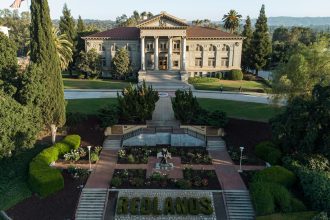### university-policy-decisions
## Universities Navigate Political Currents: Balancing Values and Pragmatism
Higher education institutions often find themselves at a crossroads when political landscapes shift dramatically. The decisions made by university leadership during such times can have profound implications, shaping not only academic freedom but also the very identity of these esteemed centers of learning. This article delves into the complex considerations universities face when responding to political pressures, exploring the delicate balance between upholding core values and engaging in pragmatic decision-making.
Universities Navigate Political Currents: Balancing Values and Pragmatism
The Shifting Sands of Higher Education Policy
In an era of rapid political change, universities are increasingly called upon to articulate their stances on national and global issues. This presents a significant challenge for institutions that serve diverse student bodies and grapple with a wide range of perspectives. The question of how university presidents and governing boards respond to these pressures is crucial, influencing everything from research initiatives to student life.
Defining the University’s Role in Society
At its core, higher education is dedicated to the pursuit of knowledge, critical thinking, and the fostering of informed citizens. However, the practical application of these ideals in a politically charged environment requires careful navigation. Should universities act as vocal advocates for certain principles, or should they maintain a more neutral stance to ensure broad inclusivity and academic freedom?
Key Considerations for University Leadership
When faced with significant political developments, university leaders must weigh multiple factors before making policy decisions. These include the institution’s mission, its commitment to academic freedom, the well-being of its students and faculty, and its financial stability. The desire to foster academic alliances can sometimes conflict with the need to take a public stand on contentious issues.
Upholding Academic Freedom
Academic freedom is a cornerstone of higher education, allowing for the open exploration of ideas without fear of reprisal. Decisions regarding political engagement must be made with a keen awareness of how they might impact this fundamental principle. Overly strong political stances, or conversely, a perceived silence on critical matters, can both create challenges.
Fostering a Welcoming Campus Environment
Universities are microcosms of society, bringing together individuals from diverse backgrounds and with varied viewpoints. Policy decisions related to political events must consider their potential impact on creating an inclusive and supportive environment for all members of the campus community. This often involves complex discussions about free speech, protest, and the boundaries of acceptable discourse.
Strategies for Navigating Political Challenges
There are several approaches universities can adopt when confronted with political pressures. These strategies aim to preserve institutional integrity while responding effectively to the contemporary landscape.
Prioritizing Academic Alliances
One path involves emphasizing and strengthening academic alliances. This means focusing on collaborations that advance research, scholarly exchange, and educational opportunities across institutions, regardless of political affiliations. Such alliances can provide a stable foundation for academic pursuits amidst external turbulence.
Engaging in Measured Dialogue
Another strategy involves engaging in measured and thoughtful dialogue. This doesn’t necessarily mean taking a definitive political side, but rather facilitating discussions and providing platforms for reasoned debate on complex issues. Universities can serve as vital spaces for intellectual engagement, helping students and faculty to understand different perspectives.
The Importance of Transparency
Regardless of the chosen approach, transparency in decision-making is paramount. When universities communicate their reasoning behind policy choices, it helps build trust and understanding among students, faculty, alumni, and the broader public. Open communication about the challenges and considerations involved is key.
Looking Ahead: The Future of University Policy
The role of universities in society is constantly evolving. As political landscapes continue to shift, higher education institutions will undoubtedly face new and complex challenges. The ability to make thoughtful, principled, and pragmatic decisions will be essential for them to continue serving their vital mission.
Balancing Ideals and Practical Realities
Ultimately, the path forward for universities lies in finding a sustainable balance between their core ideals and the practical realities of the world they inhabit. This may involve a combination of proactive engagement, strategic alliances, and a steadfast commitment to the principles of academic inquiry and open discourse.








